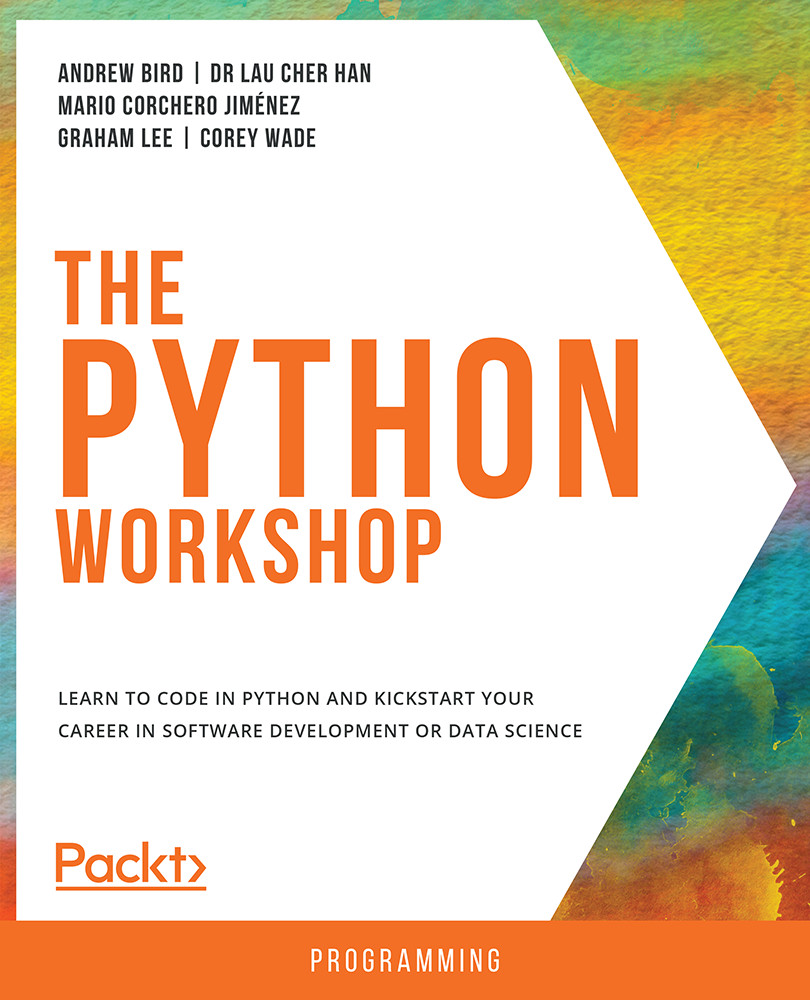-
Book Overview & Buying

-
Table Of Contents

The Python Workshop
By :

The Python Workshop
By:
Overview of this book
 Free Chapter
Free Chapter
 Sign In
Start Free Trial
Sign In
Start Free Trial


 Free Chapter
Free Chapter
You have gone over a lot of material in this introductory chapter. You have covered math operations, string concatenation and methods, general Python types, variables, conditionals, and loops. Combining these elements allows us to write programs of real value.
Additionally, we have been learning Python syntax. You now understand some of the most common errors, and you're becoming accustomed to the importance that indentation plays. You're learning how to leverage important keywords such as range, in, if, and True and False.
Going forward, you now have the key fundamental skills required of all Python programmers. Although there is much to learn, you have a vital foundation in place to build upon the types and techniques discussed here.
Coming up next, you will learn about some of the most important Python types, including lists, dictionaries, tuples, and sets.

Change the font size
Change margin width
Change background colour